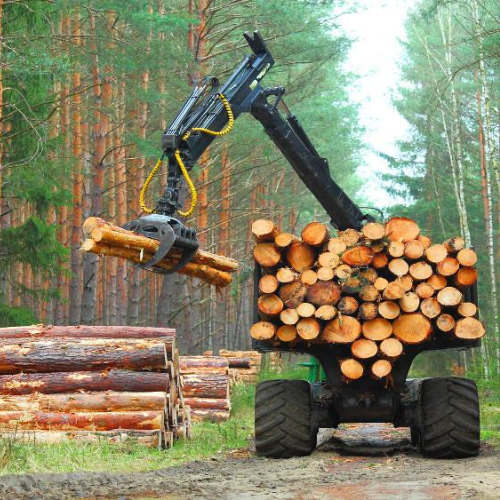A new study has revealed a shocking fact: almost half of the timber entering the UK under claims of being sustainable and legal may actually come from banned sources like Russia and Belarus. This is a serious issue because timber from these countries has been under strict sanctions since Russia invaded Ukraine in 2022. These sanctions were put in place to stop money from reaching the Russian government, which is using it to fund its war.
The study focused on birch wood – a popular type of hardwood used in furniture, kitchen panels, and even musical instruments. While these wood products were labelled as coming from places like Ukraine, Poland, Estonia, and Latvia, scientists used a special test to check where it actually came from. This test looked at the “chemical fingerprint” of the wood – which shows details about the soil, water, and sunlight where the tree grew.
The results were worrying. Out of 52 wood samples tested, 24 were found to have been labelled with the wrong country of origin. That means 46% of the supposedly “safe” and “legal” wood might be from somewhere completely different – most likely Russia or Belarus. These are countries that are currently banned from sending wood products to the UK and Europe.
Protected Payment System Bypasses Global Sanctions Wall
Certification Systems Under Fire
Most of this wood was certified by global sustainability schemes like the Forest Stewardship Council (FSC) and the Programme for the Endorsement of Forest Certification (PEFC). These are big names in the timber world. They’re supposed to make sure that forests are being cut down in a way that doesn’t harm the environment. They also aim to ensure that timber is legally harvested and doesn’t come from areas of conflict.
But this new research shows that even certified wood may not be what it claims to be. The study, done by World Forest ID – a group that uses science to trace the origin of natural materials – tested the wood with high-tech tools to uncover the truth. They used stable isotope analysis, which looks at how elements in the wood are different depending on where the tree grew.
Shockingly, even though the FSC had suspended Russian and Belarusian wood from their certification after the war began, the results showed that wood with their label still might be coming from those very countries. PEFC also banned wood from those areas by marking it as “conflict timber,” yet some of the mislabelled wood carried their certification too.
This raises serious questions about how reliable these labels are. While the PEFC noted that only a small part of the tested wood (14%) had their stamp on it, the fact that any certified wood may be slipping through the cracks is a huge concern.
Smuggling Wood Through Loopholes
When sanctions were first introduced in 2022, official records showed a drop in Russian timber exports to Europe and the UK. But then, something strange happened. Exports of wood from countries like Kazakhstan and Turkey suddenly shot up. For example, Kazakhstan’s plywood exports jumped from just 600 tonnes in 2021 to over 25,000 tonnes in 2022.
Crackdown: U.S. Sanctions Iranian Oil Tycoon Emamjomeh for Secret Global Fuel Network
This raised red flags among experts who now believe these countries may be used as a “back door” to sneak banned Russian wood into Europe. The process is often called “wood laundering.” It means that wood is shipped to another country first, given a new label, and then sent on to Europe as if it came from the new country.
Investigators also found that this is happening on a massive scale. One report claimed that around 20 containers of this “laundered” wood are arriving every day, making it extremely difficult to stop. Worse still, it is believed that the money made from selling this timber is helping fund the Russian military and oligarchs closely tied to the government.
This isn’t just a problem for governments and businesses – it affects regular people too. The furniture people are buying for their homes, the panels in their kitchens, and even wooden musical instruments may be made with illegally sourced birch wood. And despite the labels promising sustainability and safety, those promises might be false.
The UK government has said it is reviewing its timber policies to make sure the wood entering the country is legal and truly sustainable. But as it stands, the systems meant to keep illegal and dangerous wood out of the UK are clearly not working as they should.


